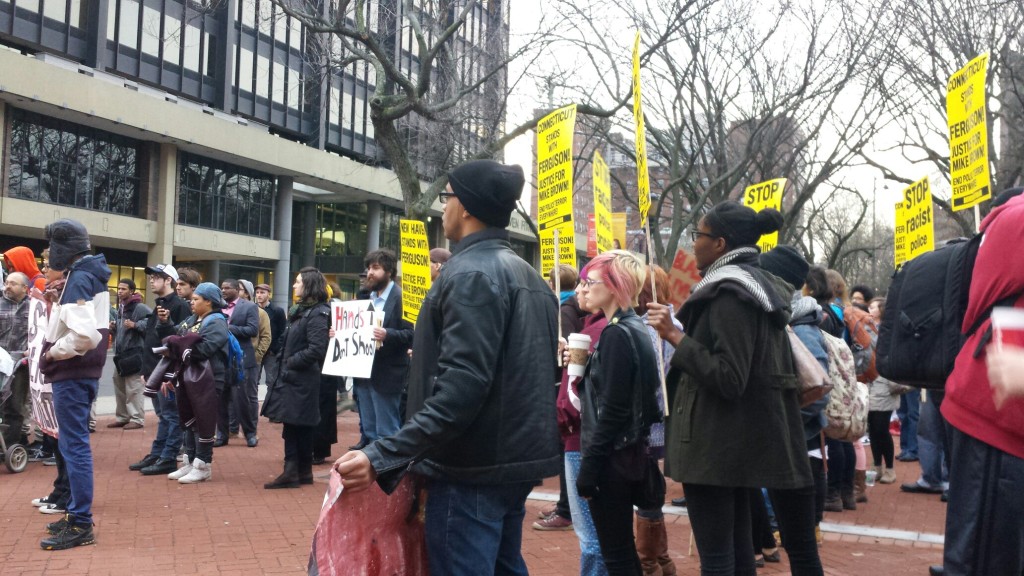Protesting racial injustice in Missouri, New Haven and at large, well over a hundred gathered on the New Haven Green early this evening in the wake of a grand jury’s decision not to indict a white police officer in the killing of an unarmed black teenager.
“We believe we have to fight against racism in all of its forms and police brutality is an epidemic across all parts of the country,” said Chris Garafa, the organizer of the rally.
The protest, organized by the Connecticut branch of ANSWER (Act Now to Stop War and End Racism) — a national justice coalition — came less than a day after it was announced that Ferguson, Mo. police officer Darren Wilson would not be indicted for killing Michael Brown.
In front of City Hall, protesters argued that Brown’s killing, and the grand jury’s failure to indict Wilson, represented a broader pattern of racism in the United States. In particular, the protesters focused on the justice system and what they called its unfairness to blacks.
The most significant implication of the Ferguson decision, Garafa said, is the deepening of the divide between the police force and the black community.
Garafa noted that in the state of New York, blacks are far more often the victims of police shootings than other ethnicities. According to the 2012 New York Police Department Firearms Discharge Report, which gathered data on those shot at by police officers, 74 percent of the city’s victims were black — less than 3 percent were white.
Several at the rally suggested that the issue of racist police violence extends to New Haven. Lincoln Wilson, a student at Common Ground High School, said that he has had friends who have suffered from police brutality and racial discrimination. A number of attendees at the rally shared personal stories of racially motivated violent encounters with New Haven and East Haven police officers.
There are people, Garafa said, “who are standing in New Haven and saying how they are afraid their family or friends might become the next Michael Brown.”
Still, the scene in New Haven Tuesday night was dramatically different from that in Ferguson Monday evening. Instead of tear gas and smoke bombs, police escorted protesters through the Elm City as they marched away from the New Haven Green.
Several at the rally said that while they were disappointed by the grand jury’s decision, they were not surprised. Tori Santos and Thalee Martinez, both students at Common Ground High School, said that the verdict indicated pervasive racism throughout the justice system.
Quentin Little, a student at Amistad High School, said that he felt the justice system was “racist” and “not really supporting the people.”
Others, though, looked even further.
“This is a much bigger issue than just that decision,” Wilson said. “It’s something that’s been happening throughout all of American history.”








